We have already explored outstanding examples of contemporary subterranean architecture. This time, we have compiled a handpicked selection of hotels and retreats that are beautifully carved directly into the landscape allowing the visitors to stay in perfect sync with the surroundings.
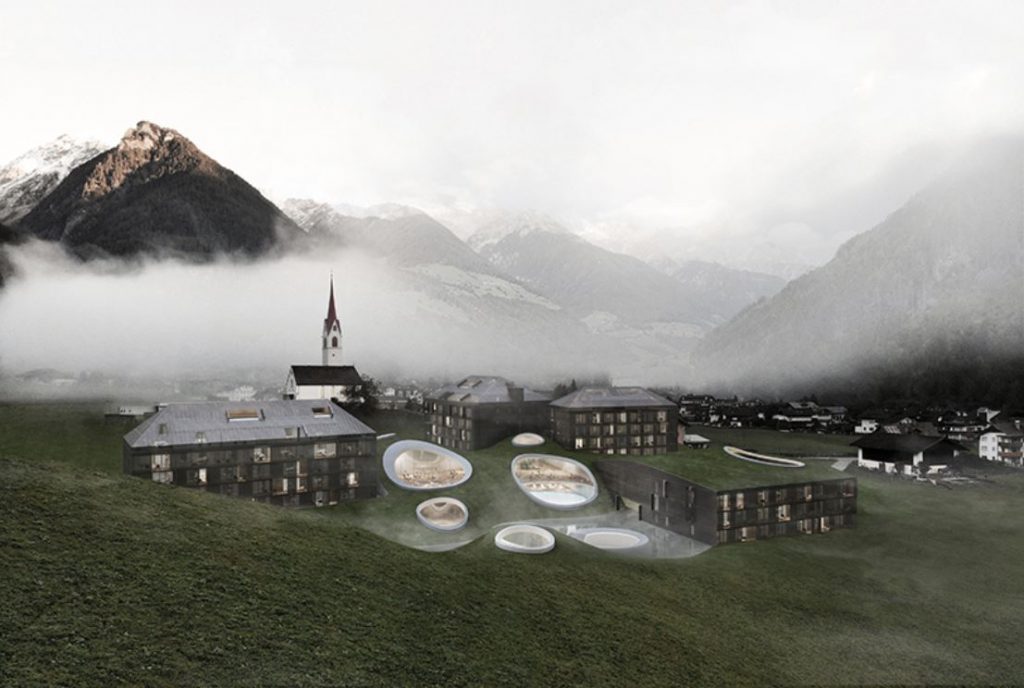
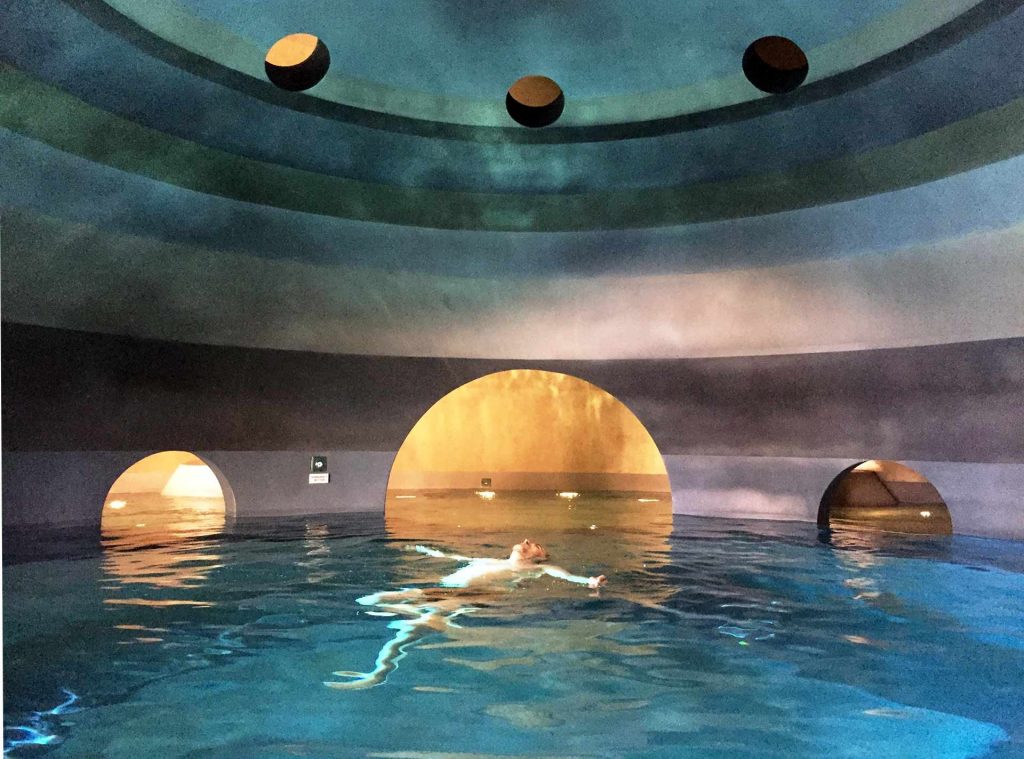
Euphoria Spa by decaARCHITECTURE
Located besides the UNESCO World Heritage Site of Mystras, an important Byzantine landmark, the Euphoria Retreat is the first destination spa in Greece. Conceived by the Greek practice decaARCHITECTURE, the Euphoria Spa is the centrepiece of the retreat. It is a four-storey 3000sqm building that is carved into the base of a mountain, between the town and cypress forest. The design of the Spa is meant to be at the same time peaceful and subversive, meditative and hallucinatory, orderly and free-flowing.
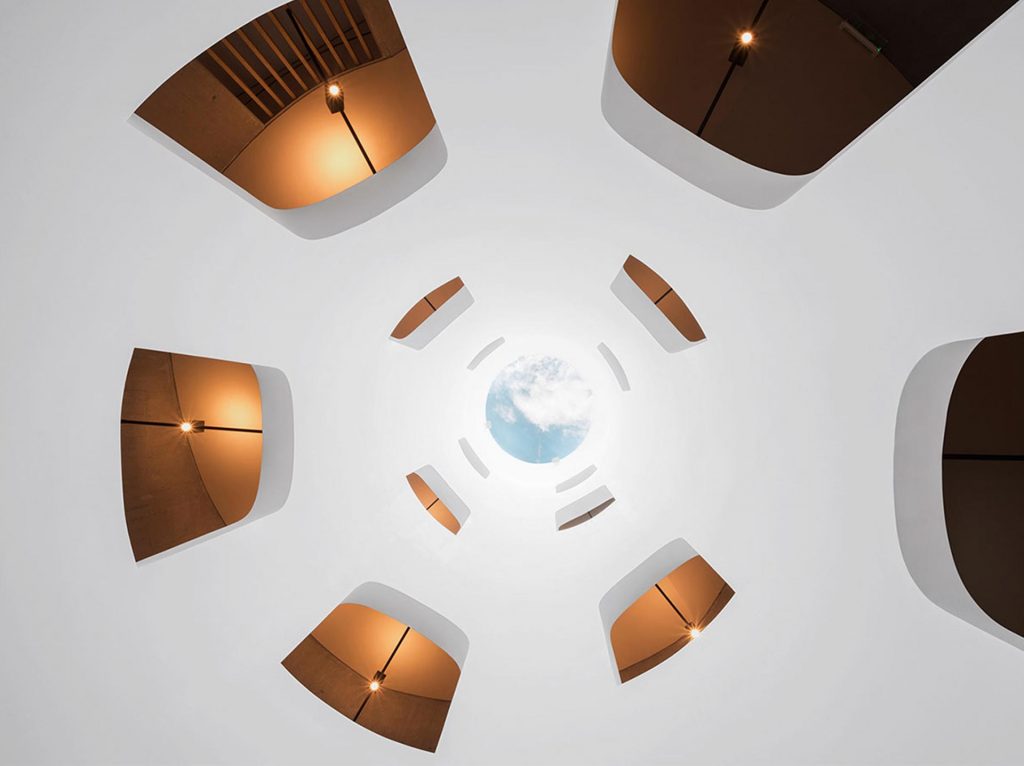
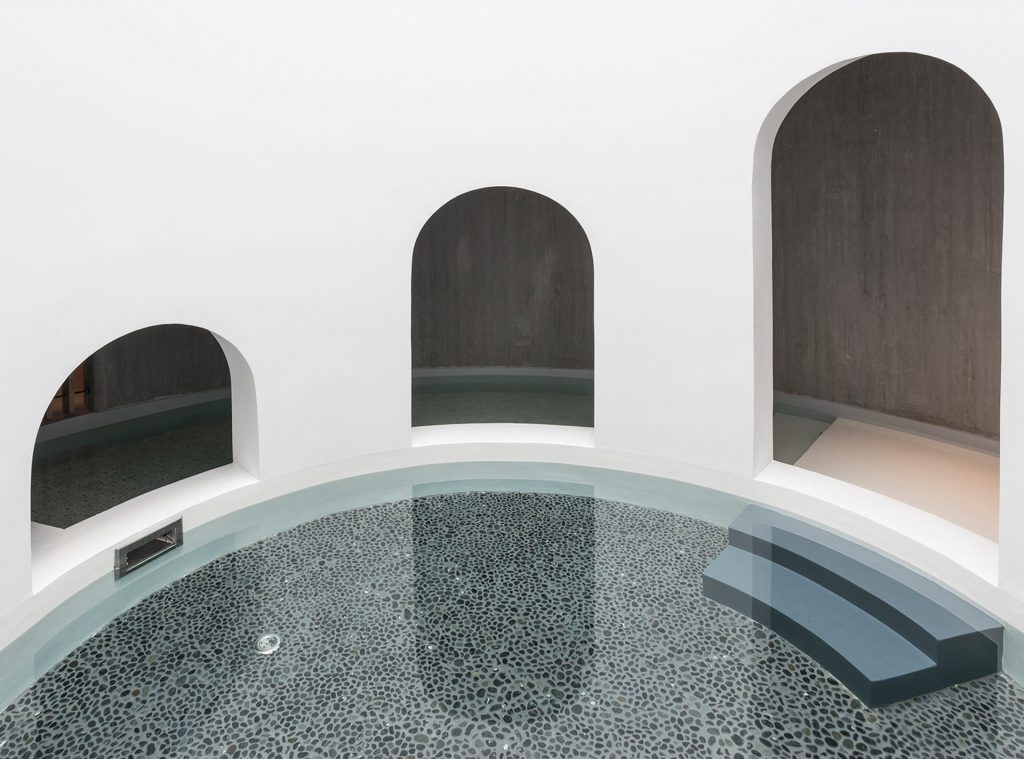
Euphoria Spa by decaARCHITECTURE
To blend into its setting, each floor is set back into the earth revealing only its facade. The shell is made of pale-red exposed concrete, which is slanted and stepped, using a clapboard technique for its moldwork.
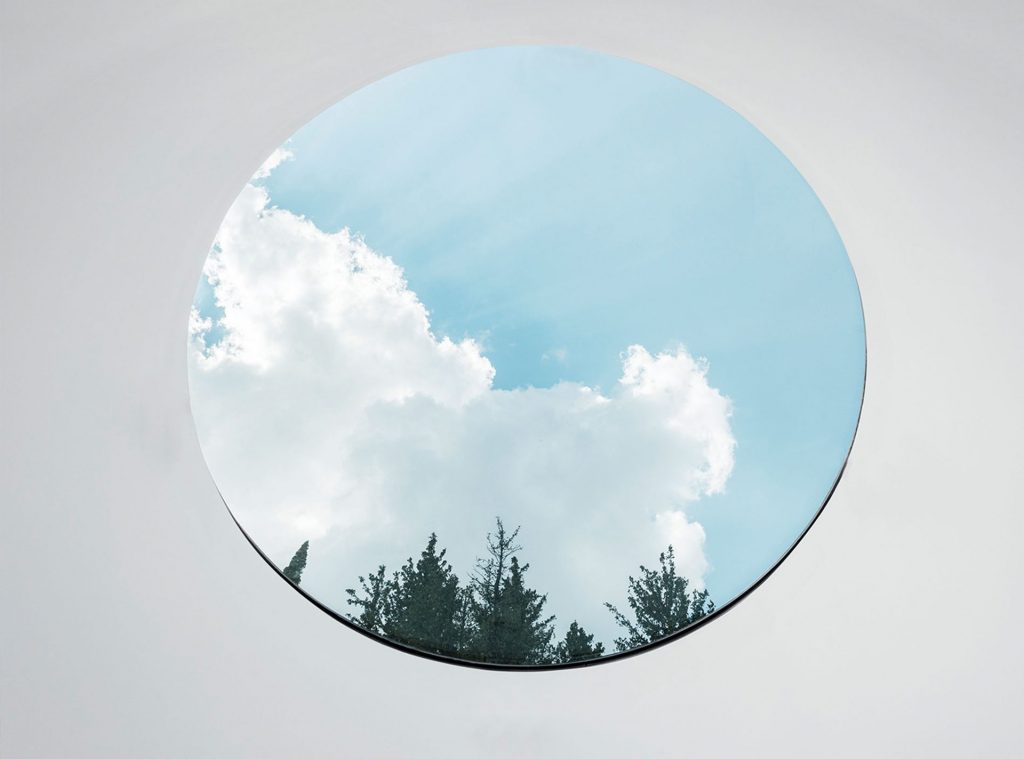
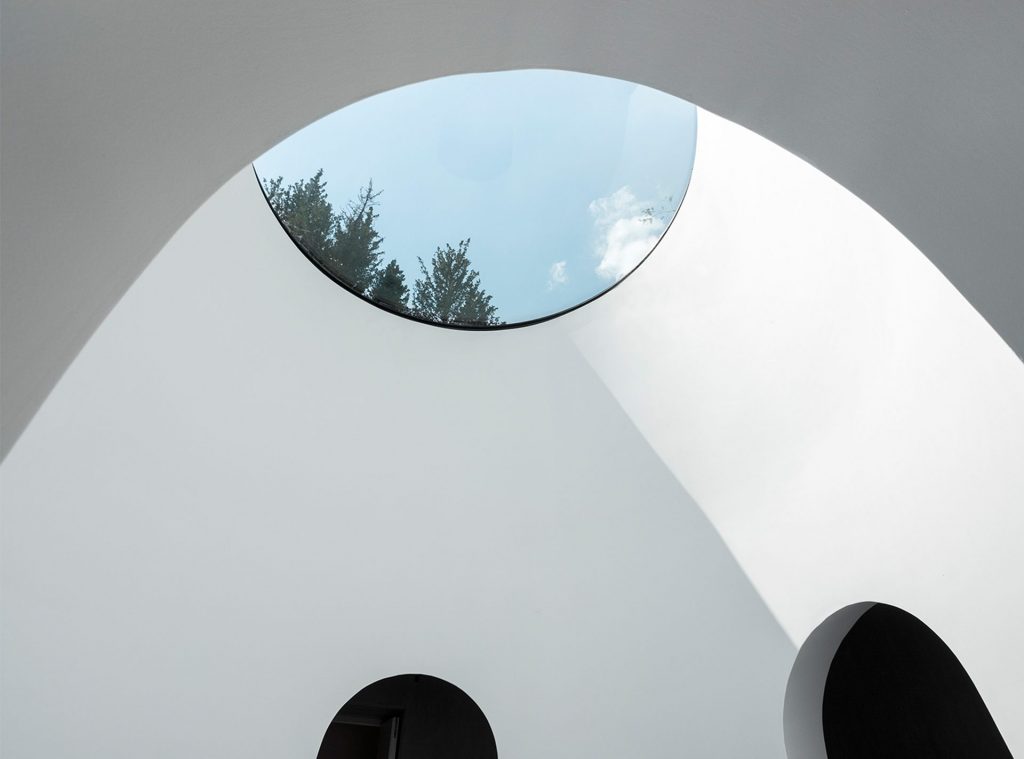
Euphoria Spa by decaARCHITECTURE
At the entrance level, located at very bottom, carved spaces where elliptical geometries of different scale intertwine, guide the visitors through meandering catacomb-like passages. A flood of natural light originating from a tall cylindrical well with a large skylight at the very top draws the visitor deep into the ground. The main staircase spiralling around the well then leads them to four levels with very distinct experiential qualities.
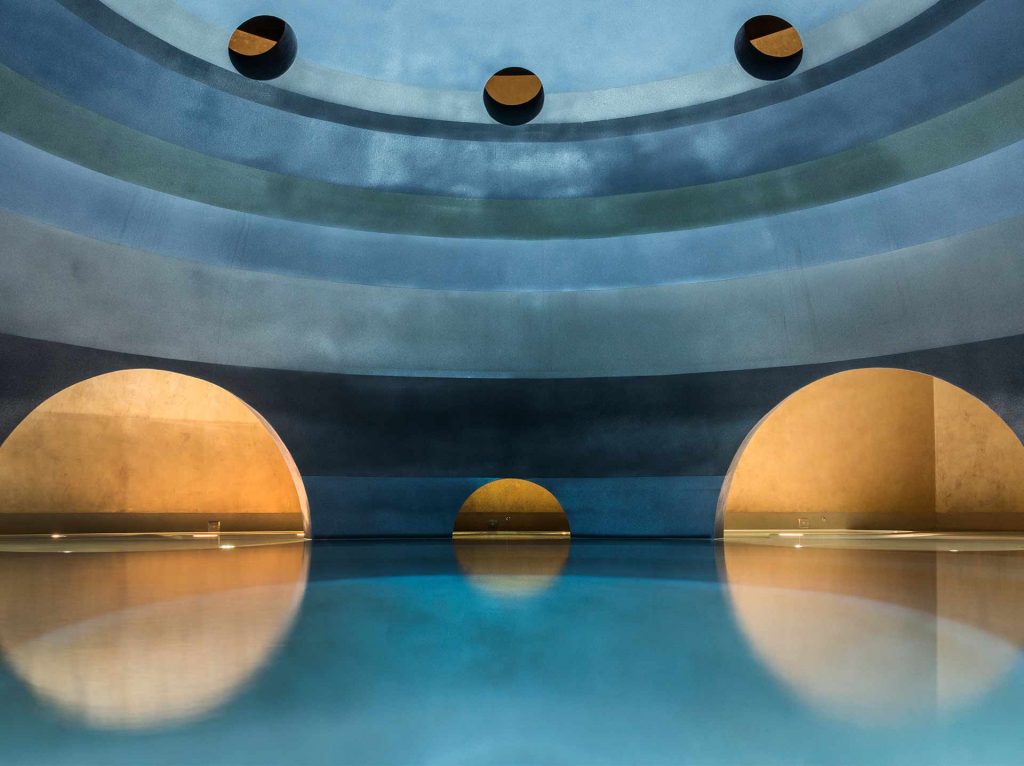
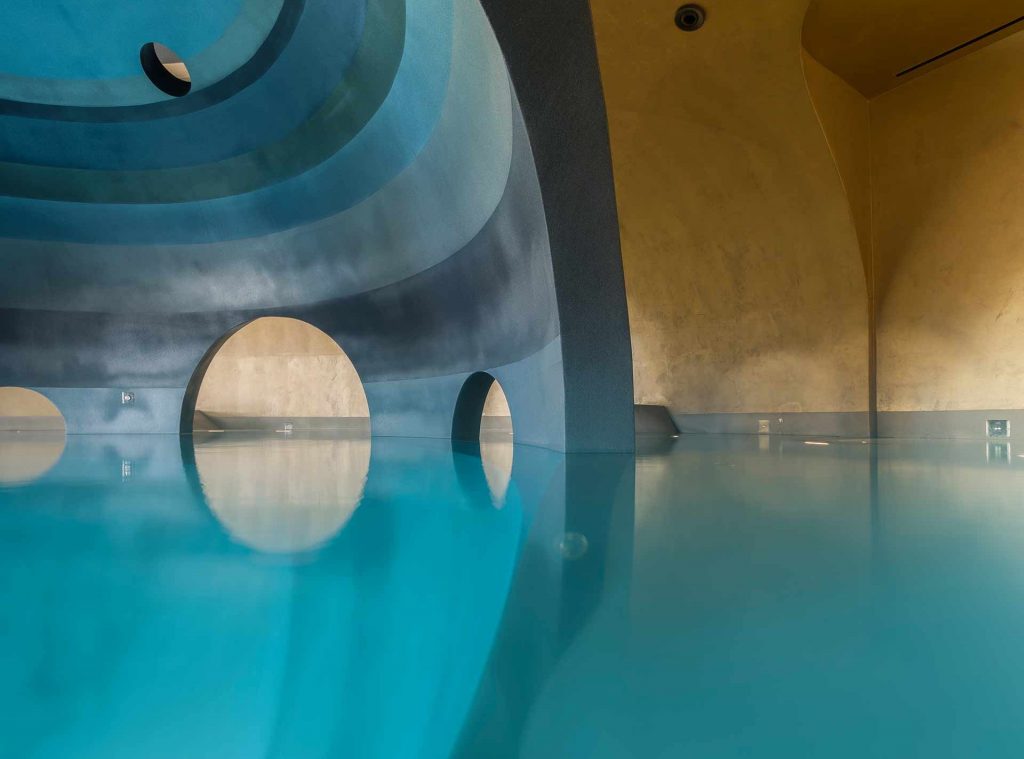
Euphoria Spa by decaARCHITECTURE
The second level is the most complex and diverse. It is organized like the gears of a mechanical clock, where the visitor moves around alternate centers with variable degrees of humidity and temperature. The third floor contains fifteen small monastic chambers, which serve as private treatment rooms. The final floor, which is in closest connection with the forest, has two large gathering spaces for classes and conferences.
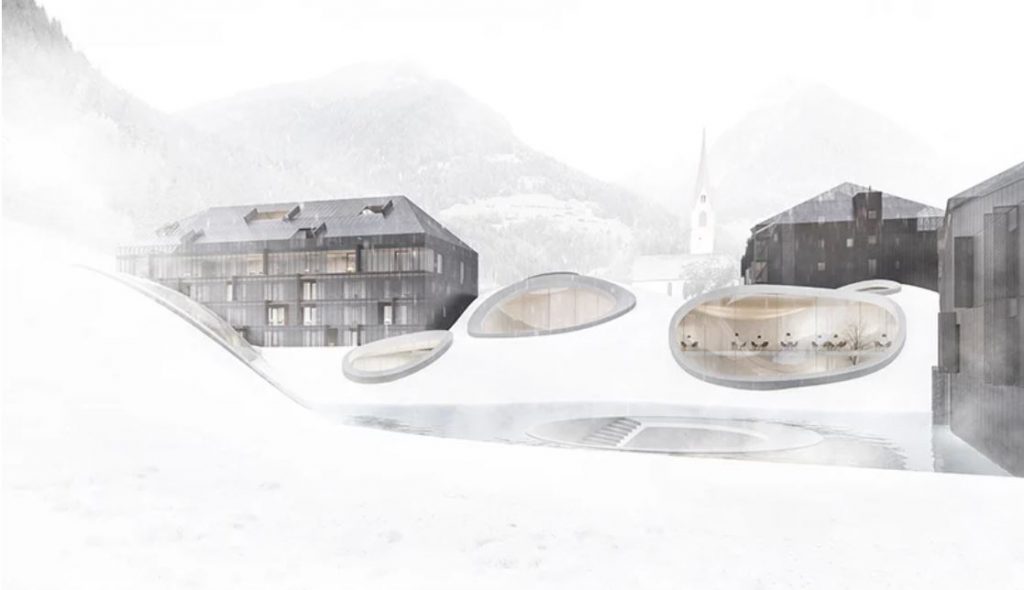
Hotel extension by Markus Hinteregger and Elias Lahner (also header image)
As part of the competition organized by the owners of a hotel in the mountain village of Luttach in northern Italy seeking to extend and unify the entire hospitality complex, architects Markus Hinteregger and Elias Lahner have envisioned the restructuring of the existing buildings based on the organic forms of the surroundings. The project blends into the contours of the landscape and creates a more natural open space for visiting guests.
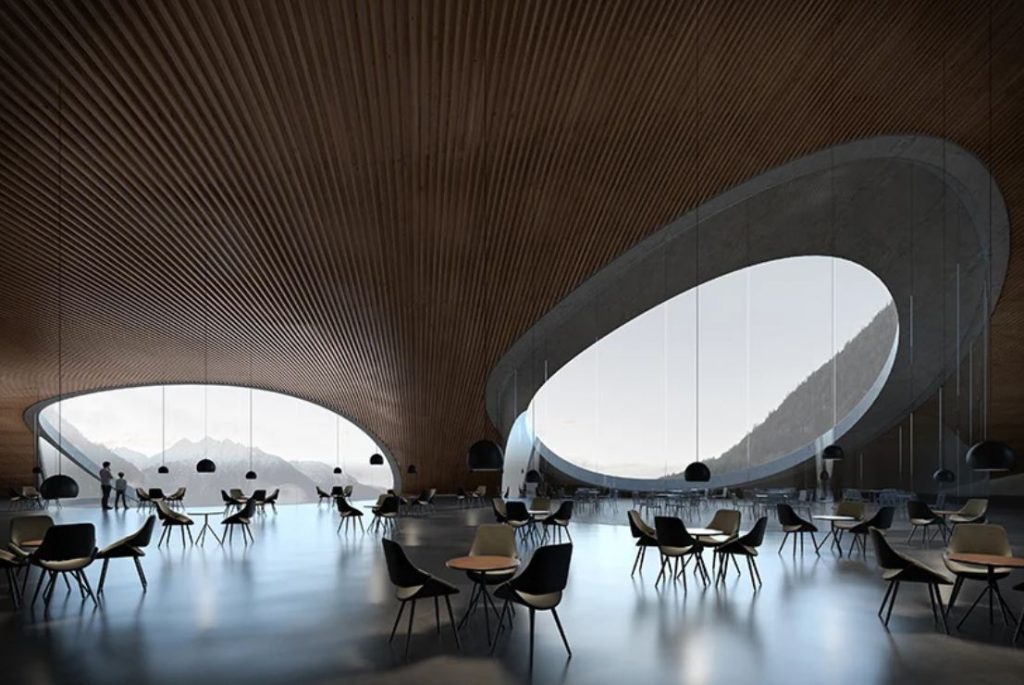
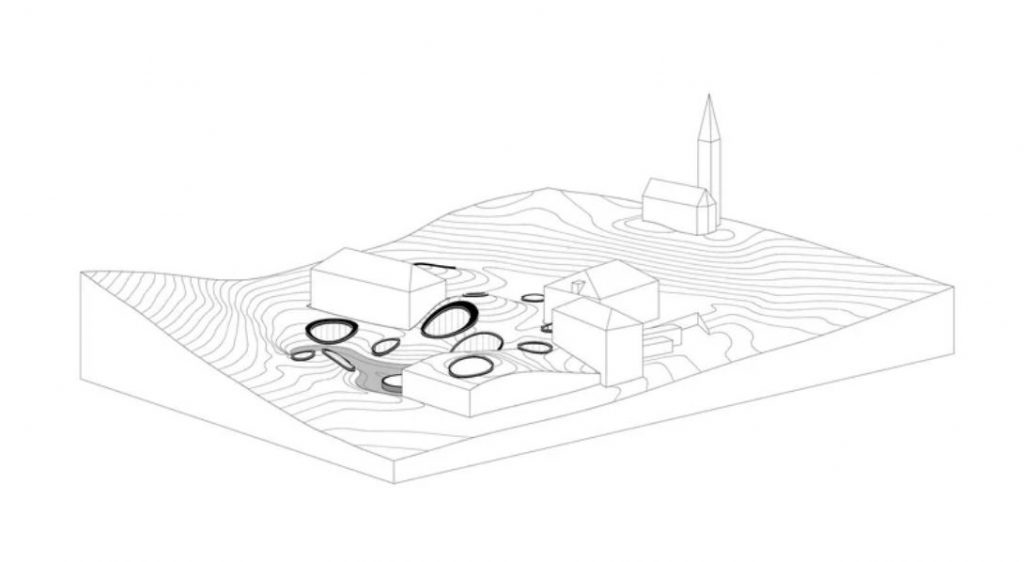
Hotel extension by Markus Hinteregger and Elias Lahner
Between the existing buildings, which are clad in expanded metal to unify all the façades and create a new ‘face’ for the hotel, there are organic spaces that look like they have been carved from the land, their rounded forms harmonizing with the hilly landscape. This extension, embedded in the landscape, can be used for a variety of functions and is conceived as the focal point for guests who stay in the hotel.

Villa Nai 3.3 by Nikola Bašić (via mymodernmet)
What makes the Villa Nai 3.3 luxury 5-star hotel developed by renowned Croatian architect Nikola Bašić special is its perfect sync with the surroundings. The design uses architecture to celebrate the beauty of the landscape. Located in the middle of the Adriatic Sea, on the Dalmatian island of Dugi Otok in Croatia, the accommodation is carved into a hill with its exterior walls replicating the traditional stone walls from the enclosing orchard boasting 1000 trees, the third of which account for 500-year-old olive trees.

Villa Nai 3.3 by Nikola Bašić (via mymodernmet)
The form and the history of the site defined the design. Irregular walls follow the contour of the hill and are made using local stones assembled with traditional building techniques. Paying homage to the local heritage, the architect has utilized techniques derived from dry walling, a traditional Dalmatian method of building stone walls without any mortar to bind them. These walls provide the general entrance, but large glass partitions preserve views for guests to the outside. To achieve maximum environmental sustainability, the stone was excavated from the very site and used as a building material.

Villa Nai 3.3 by Nikola Bašić (via mymodernmet)
Sculpted out of the hill, the complex features eight differently designed luxury accommodation units, a wellness establishment with indoor and outdoor swimming pools, a bio sauna, and a spa area that stays on-brand with olive-based treatments. The hotel also has a bar and a restaurant, Grotta 11 000 and 3.3 respectively, serving authentic dishes made in combination with innovative modern culinary techniques.